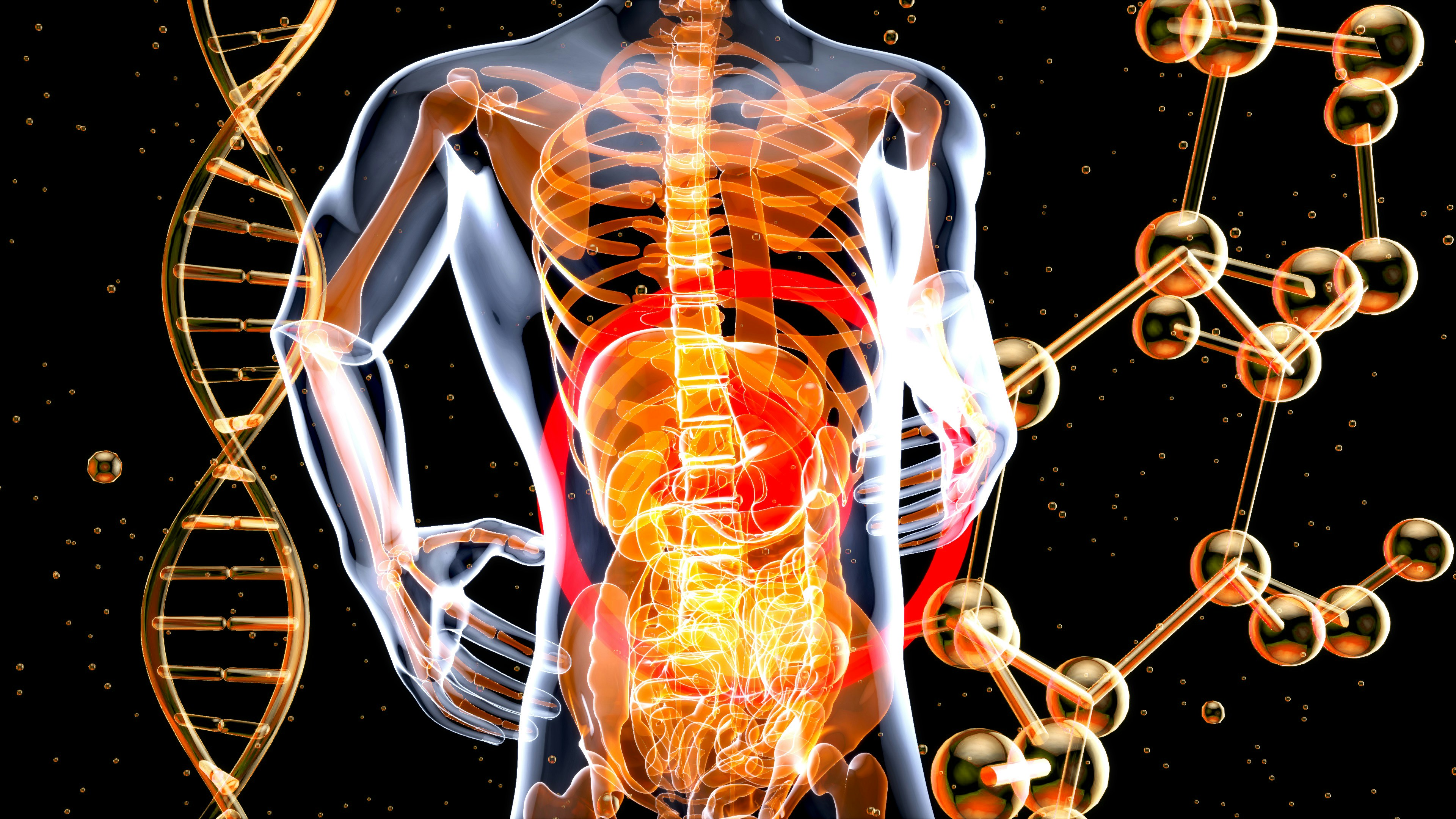Diet
Diet
Diet
Menopause, Weight Loss, and Gut Health: The Missing Link You Need to Know
A study published in Nature Reviews Immunology highlights the gut's role in immune regulation, emphasizing that approximately 70% of the immune system resides in the gut (Belkaid & Hand, 2014). Meanwhile, research in The Journal of Clinical Investigation indicates that gut dysbiosis (imbalance of gut bacteria) may drive metabolic disorders, weight gain, and inflammation, underscoring the importance of a well-balanced microbiome in maintaining overall health (Turnbaugh et al., 2006). These findings suggest that optimizing gut health is foundational to well-being—including for those navigating menopause and weight loss.



Your gut does more than just digest food—it plays a crucial role in regulating your immune system, energy levels, and even your mood. Recent research suggests that a well-balanced gut microbiome can significantly impact overall health, preventing chronic inflammation and supporting metabolic function.
Menopause and Losing Weight: The Gut’s Role
Menopause brings hormonal changes that can make weight loss challenging. Many women experience a slower metabolism, increased fat storage, and difficulty maintaining lean muscle mass. However, emerging studies suggest that gut health is a missing piece of the puzzle when it comes to managing weight effectively during menopause.
Hormonal Shifts and Gut Microbiome Changes
During menopause, estrogen levels drop, leading to changes in gut bacteria diversity. A Frontiers in Endocrinology study found that estrogen plays a critical role in maintaining gut microbiota balance. Lower estrogen levels have been linked to an increase in inflammation-promoting bacteria, which can contribute to insulin resistance, bloating, and weight gain.
Gut Bacteria and Metabolism
Your gut bacteria influence how efficiently you metabolize food. Beneficial microbes help break down fiber into short-chain fatty acids (SCFAs), which promote satiety and regulate fat storage. Research published in Cell Metabolism found that people with a diverse gut microbiome tend to have a healthier metabolism, while those with gut imbalances may struggle with weight gain.
The Inflammation-Weight Gain Cycle
Chronic inflammation, often exacerbated by poor gut health, can hinder weight loss. Inflammation promotes cortisol production (a stress hormone linked to belly fat) and disrupts insulin sensitivity. Studies in The American Journal of Clinical Nutrition suggest that reducing gut inflammation through diet and probiotics may enhance weight loss and improve metabolic function.
Optimizing Gut Health for Menopause and Weight Loss
The good news? A targeted approach to gut health can ease menopausal weight gain and support overall well-being. Here’s how:
1. Increase Probiotic and Prebiotic Intake
Probiotics (found in yogurt, kimchi, and sauerkraut) help replenish beneficial bacteria.
Prebiotics (fiber-rich foods like garlic, onions, and bananas) nourish these bacteria, encouraging growth.
2. Reduce Processed Foods and Sugar
Processed foods and refined sugars feed harmful gut bacteria, promoting inflammation. A whole-food, fiber-rich diet can restore microbial balance and improve weight regulation.
3. Incorporate Anti-Inflammatory Foods
Turmeric, green tea, and omega-3-rich foods (salmon, flaxseeds) help counteract inflammation, supporting both gut and hormonal health.
4. Manage Stress and Improve Sleep
Chronic stress affects the gut-brain axis, worsening gut imbalance. Mindfulness, deep breathing, and a consistent sleep schedule can positively impact gut function and hormone balance.
Conclusion
By focusing on gut health, women navigating menopause can not only manage weight more effectively but also enhance energy levels, mood, and immune function. Science-backed strategies—like eating probiotic-rich foods, reducing inflammation, and balancing hormones naturally—can make all the difference.
Articles
Discover our other articles
Explore our articles to know the best behavior about alimentation and well-being.




















